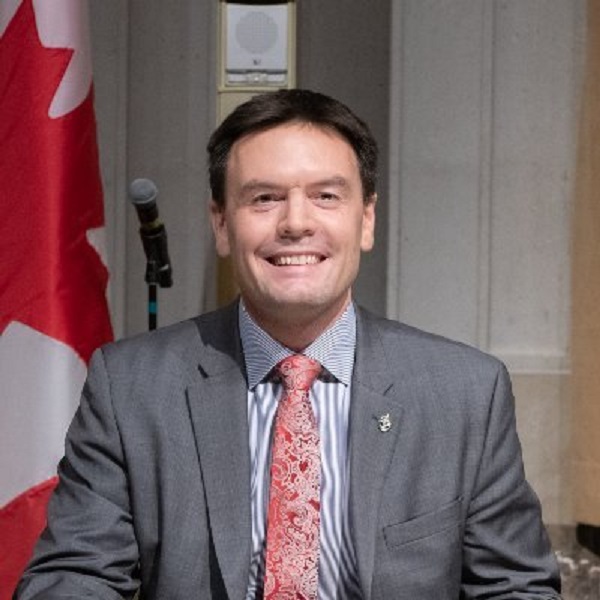DURING Thursday’s meeting of the Standing Committee on Public Safety, NDP critic Alistair MacGregor put forward a motion to investigate the role GoFundMe plays in funding hate, specifically white supremacy and anti-semitic movements. The company has ties to extremist events like the current convoy in Ottawa which pose a threat to Canadians.
“The citizens of Ottawa have been under siege for seven days now with no hope that things will get better soon. Local citizens are being harassed, spit on, children are scared of the bombardment of noise and people are afraid to leave their homes. Though not everyone in the convoy is there because they share the same views, we are extremely concerned about the prominence of hate, antisemitism, far right extremism and calls to replace the government through undemocratic means, which have been expressed among many organizers and seen among the protesters,” said MacGregor.
MacGregor’s motion calls on members of GoFundMe to appear before the committee as soon as possible. He says they need to answer questions about how the company ensures that donations are not used as a vehicle to fund extremism, explain what security measures are in place to prevent foreign funds from being used to support these views, and what measures and assurances have been put in place to ensure the $1 million that have already been released are not going towards promoting any of forms of the aforementioned unacceptable views and activities.
“GoFundMe are accountable for their role in this debacle, and it is incumbent on Parliamentarians to ask them these important questions,” said MacGregor. “We have a responsibility to Canadians to keep them safe.”
MacGregor’s motion received unanimous support from committee members.

MEANWHILE, NDP House Leader Peter Julian, MP for New Westminster–Burnaby, tabled Bill C-229, a private member’s bill that would prevent anyone from selling and displaying symbols that promote hatred. The symbols that would be banned are Swastikas and other Nazi emblems of the genocidal regime, Klu Klux Klan symbols and the Confederate flag, symbols of slavery, racism and of white supremacy. Bill C-229 is a tool designed to address the growing violence and hatred in Canadian communities.
“Everyone has the right to feel welcomed, secure and respected in their community. Allowing these symbols of hatred to be freely sold in stores and publicly displayed is retraumatizing for people who have been, and continue to be, targets of violence and oppression,” said Julian. “Symbols that have been used to incite violence against people have no place in our society. I hope all Members of Parliament will support this bill and that the government will work with us to ensure symbols of hate aren’t normalized or tolerated in any way and to make our communities better for everyone.”
He noted that during this week’s protest in Ottawa, Canadians witnessed vile and hateful displays of Nazi swastikas and the flying of Confederate flags at the very centre of Canadian democracy. But, long before the protest, the COVID-19 pandemic revealed deep socio-economic inequalities experienced by the most vulnerable populations in Canada. Islamophobia, anti-Semitism, racism, homophobia, transphobia and misogyny are growing problems in our society. Hateful and violent crimes against Indigenous people, Black, Asian and other racially marginalized communities rose and the number of hate groups in Canada increased during the pandemic. Yet, symbols of hate are freely displayed and sold across our country.
“Canadians are tired of symbolic gestures. The time for rhetoric is over: the government needs to act. Banning symbols of hatred like swastikas or Klu Klux Klan insignia is more important now than ever for all Canadians to feel safe,” said Julian. “It is up to all of us to stop the spread of hate in our communities. And this bill is a step in the right direction.”












